Does an air purifier stop mould? Experts explain how it can help tackle the spread of mould
They have good news and bad news

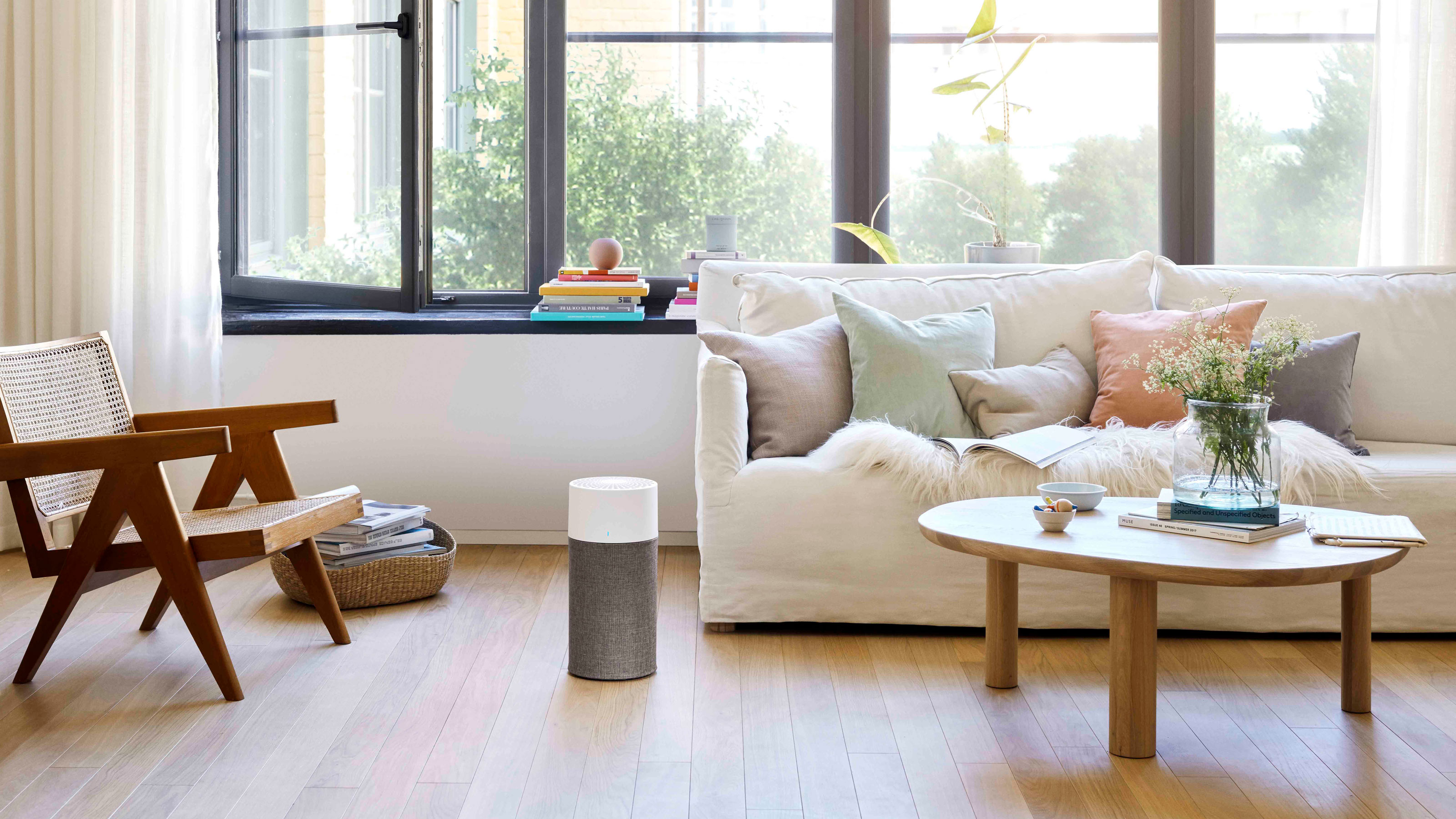
If you struggle with mould in your home you will look for any way to stop it coming back. In your quest to achieve this you might be wondering does an air purifier stop mould? We’ve asked the experts to find out if the investment will help.
At Ideal Home, we’ve tested some of the best air purifiers on the market. And while this tried and tested appliance can certainly improve your air quality and remove airborne pollutants from the air, you might be wondering whether it can also get rid of damp in your home. After all, many of us struggle with excess moisture and mould in our homes as a result of poor ventilation, leaks, and cold weather.
Left untreated, mould can prove detrimental to your house and your health. And while an air purifier might not be the mould solution you were looking for, you shouldn’t rule it out completely. Here’s why.
Does an air purifier stop mould?
If you’re wondering how to get rid of mould on walls or how to clean mould off fabric, you’ll no doubt be familiar with the risks that come with having mould in the house. Ideally, you should get rid of mould as soon as possible, but does an air purifier stop mould?
Chris Michael, Managing Director of Meaco, explains, ‘An air purifier will not stop mould as this is a moisture-based problem, and you need to think about where that moisture is coming from. A dehumidifier would be best if the moisture is being created by normal lifestyle routines (bathing, showering, drying washing, cooking etc).’
In fact, the best dehumidifiers are perfect for those who have a moisture problem and want to get rid of damp. But sadly, an air purifier doesn’t work in that same way.

Instead of drawing in and collecting the moisture from the air, an air purifier re-circulates the air while capturing airborne particles and pollutants in the process. This won’t reduce the moisture levels.
Sign up to our newsletter for style inspiration, real homes, project and garden advice and shopping know-how
However, that doesn’t mean that an air purifier can’t help those with mould problems. Chris adds, ‘Where an air purifier is useful is in capturing mould spores. These are the ‘seeds’ released by mould to help it spread and multiply. It is the mould spores that people are allergic to.’
This also means that if you tackle the damp problems in your home and remove the mould that’s taken over your house, an air purifier can stop mould from coming back and prevent it from spreading further.
Of course, you should also make sure to use an air purifier if you are actively removing mould from your home.
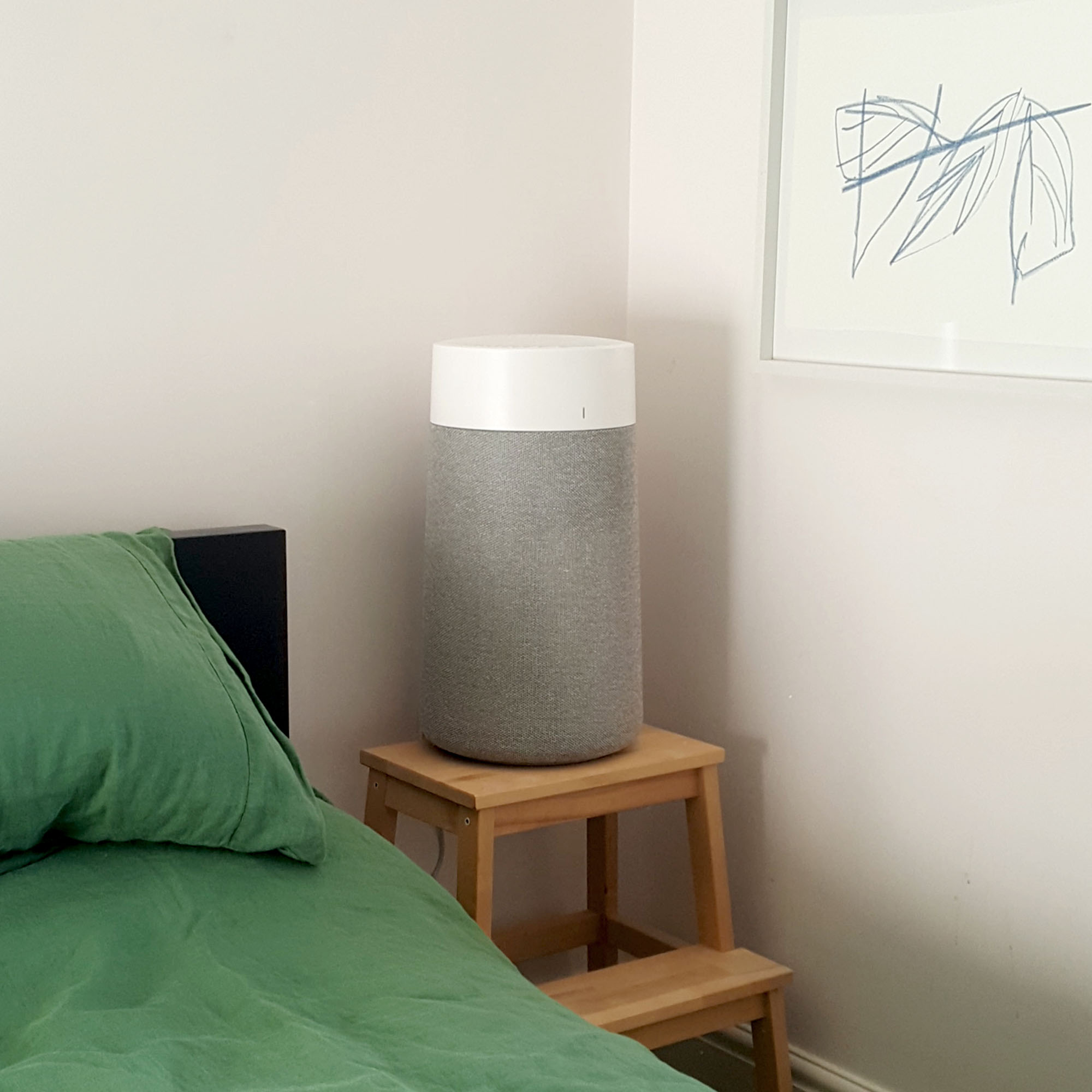
Lars Dunberger, Technology Development Manager at Blueair, explains, ‘Airborne mould particles have been shown to cause irritation in eyes, skin nose, throat, and lungs. During the cleaning process to remove mould from your environment, spores are likely to become airborne. To get rid of mould spores from indoor air, a high-performing air purifier certified for mould removal should be used.’
Doing this will pay off in the long run, though, and using an air purifier can also help to remove the mouldy, musty smell from your home. However, you need to take care of this appliance if you want to reap its mould spore and odour-removing benefits.
Cristina Raboj, Global Proposition Manager at Philips, explains. ‘It’s important to remember that even if you do have an air purifier, you need to look after it, or its effectiveness will diminish. Changing the filter regularly is a simple bit of TLC that will help ensure it’s operating at peak efficiency in your home.’
‘But, to prevent mould in the long run, you have to tackle the cause at its source. Mould thrives in damp, dark moisture-rich places, so keeping your home as dry and well-ventilated as possible is key to preventing a build up.’

Chris has been advising on humidity solutions and dehumidifiers since 1991 and is well known within the dehumidifier industry across the world as a lead on innovation and sustainability. Since the mid-90s Chris has been a guest speaker at numerous conferences to teach museum conservators how to measure relative humidity. With a wealth of experience in the industry, Chris is committed to helping provide low-energy and low-noise solutions appliances that improve the lives of customers.
The best air purifiers for mould - our top picks
If you're looking for an air purifier that will help to remove mould spores from your home, we've picked a few of our favourites below.
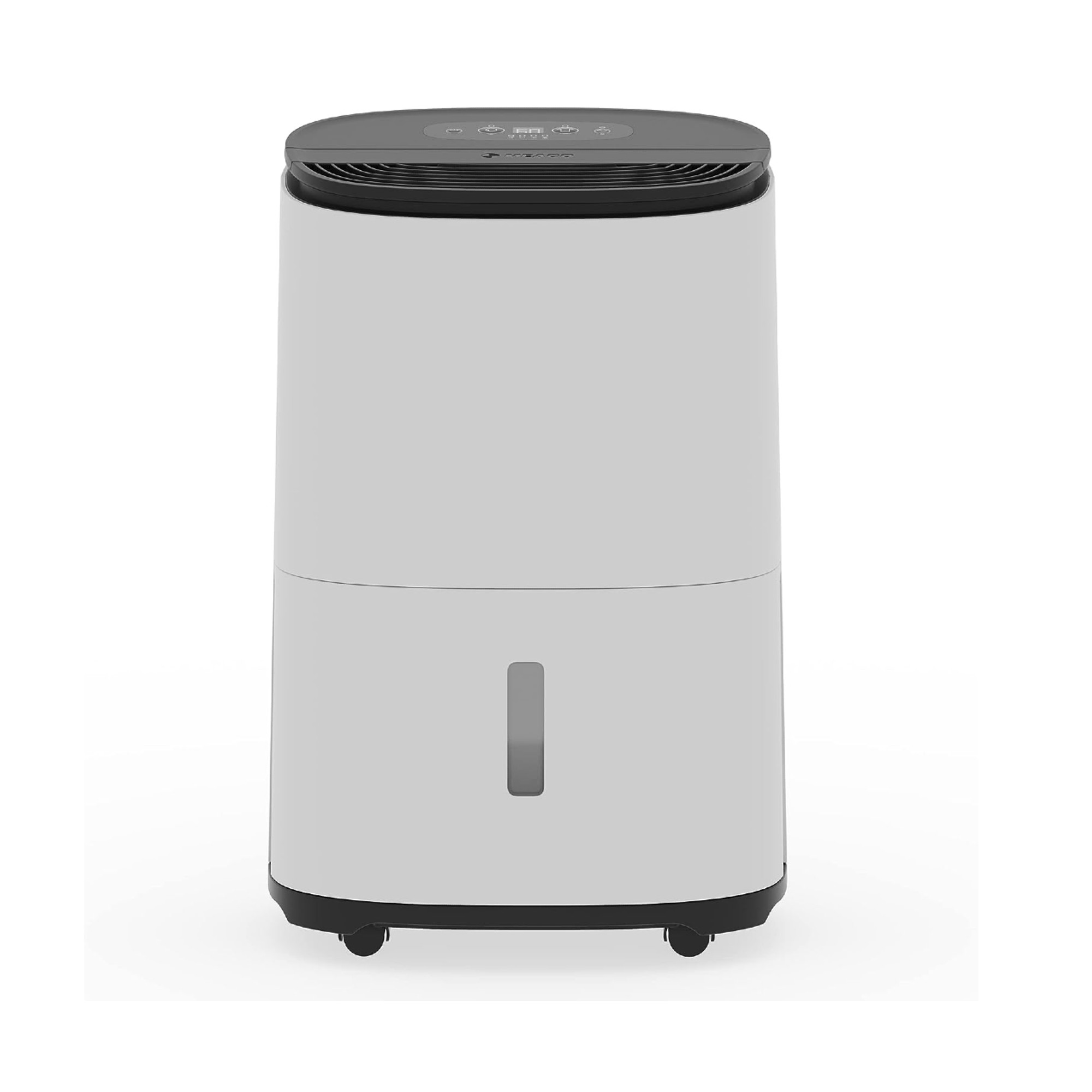
The Meaco Arete One Dehumidifier & Air Purifier offers the best of both worlds, as it's both an air purifier and a dehumidifier. This is perfect for those who are suffering from mould, as the dehumidifier can remove the excess moisture from the air, while the air purifier can remove mould spores to prevent the spread even further.
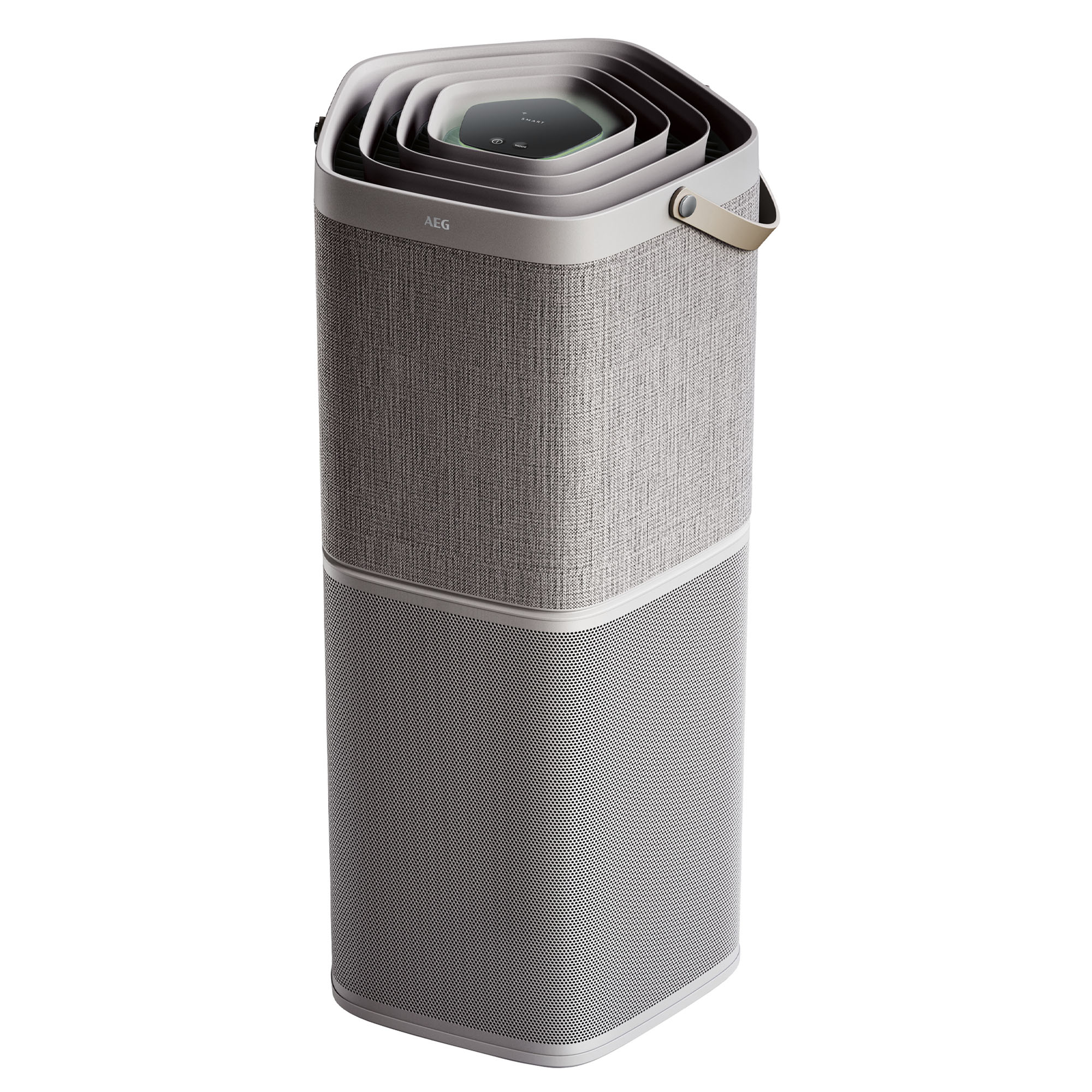
If you have a large home and want to keep it mould-spore-free, the AEG AX91-604GY Connected Air Purifier has got your back. This air purifier offers multiple filter types, including a 5-stage Pre-filter, Antibacterial Layer, Pre-charged True EPA12 Filter, Active Carbon, and Ionisation. So, tackling mould spores is a piece of cake.
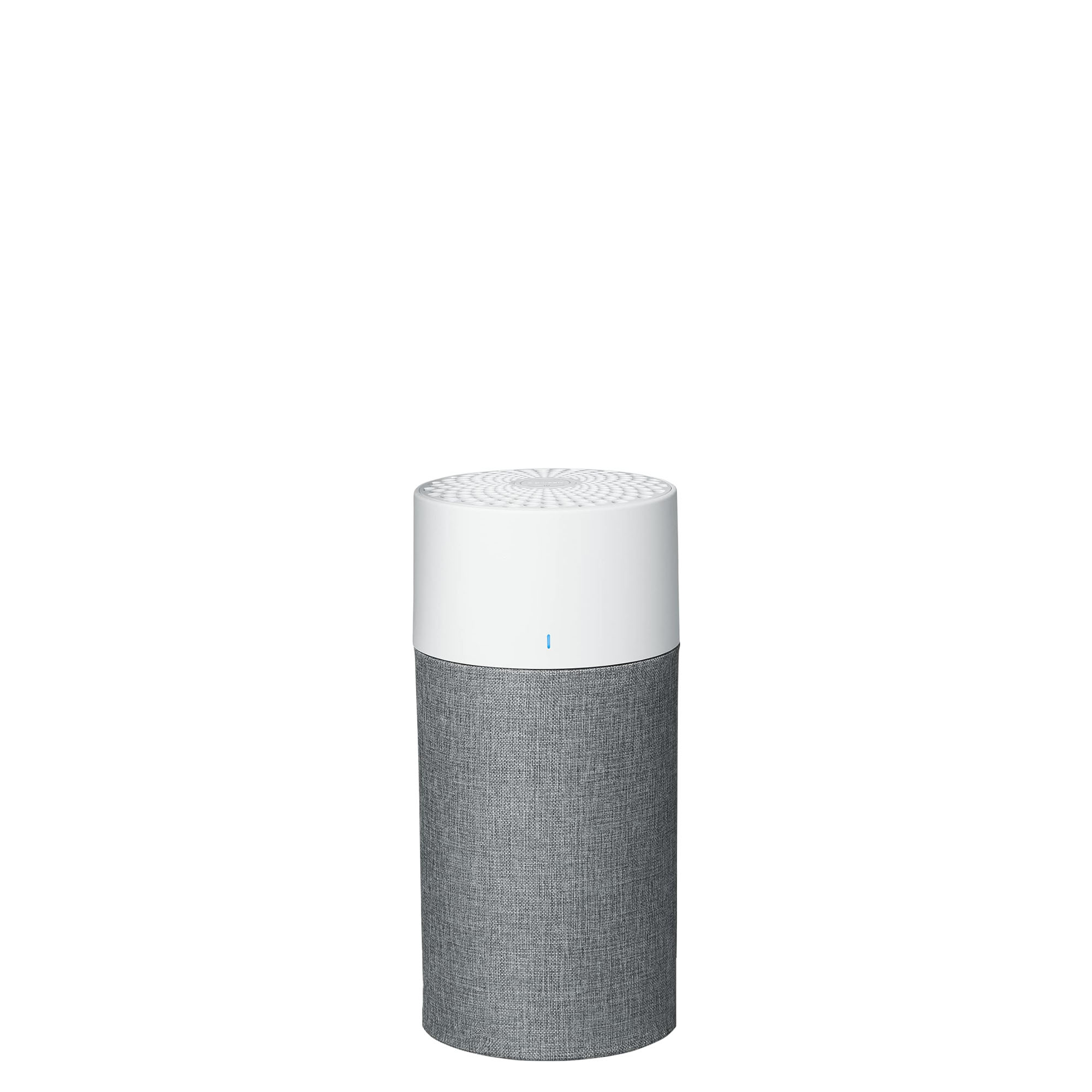
On a tighter budget? At just £99, the Blueair Blue 3210 Air Purifier is one of the cheapest air purifiers you can buy, but that doesn't mean that it's any less impressive. With its auto mode, this air purifier automatically turns off and on as air quality (and mould prevalence) fluctuates. The only kicker is that it doesn't have Wi-Fi connectivity.
FAQs
Do air purifiers really get rid of mould?
Unfortunately, no. An air purifier cannot get rid of mould as mould is caused by a build-up of excess moisture in your home. To successfully get rid of mould, you’ll need to tackle the source of the moisture, clean the mould off, and use a dehumidifier to remove this excess moisture.
An air purifier can prevent the spread of mould spores, though. This can ultimately prevent mould from spreading throughout your home and even improve the musty smell you may have in your house.
How long does it take for an air purifier to remove mould?
An air purifier will not get rid of mould, but it can capture mould spores. Depending on the magnitude of the problem, an air purifier can trap these mould spores in as little as 30 minutes.
However, you’ll need to tackle and get rid of the mould to stop these mould spores from returning.
Is a dehumidifier or air purifier better for mould?
Experts agree that the best appliance for mould is a dehumidifier, as this appliance can successfully reduce the moisture levels in the home and prevent mould from getting worse. But, like an air purifier, a dehumidifier won’t get rid of mould. It’ll just help to remove the excess moisture from the air, which can stop it from spreading and affecting your home even more.
An air purifier might not stop mould, but it’s still an appliance you need on your radar.

Lauren Bradbury has been the Content Editor for the House Manual section since January 2025 but worked with the team as a freelancer for a year and a half before that. She graduated with a Bachelor’s degree in English and Creative Writing from the University of Chichester in 2016. Then, she dipped her toe into the world of content writing, primarily focusing on home content. After years of agency work, she decided to take the plunge and become a full-time freelancer for online publications, including Real Homes and Ideal Home, before taking on this permanent role. Now, she spends her days searching for the best decluttering and cleaning hacks and creating handy how-to guides for homeowners and renters alike, as well as testing vacuums as part of her role as the Ideal Home Certified Expert in Training on Vacuums, having spent over 110 hours testing different vacuum models to date!